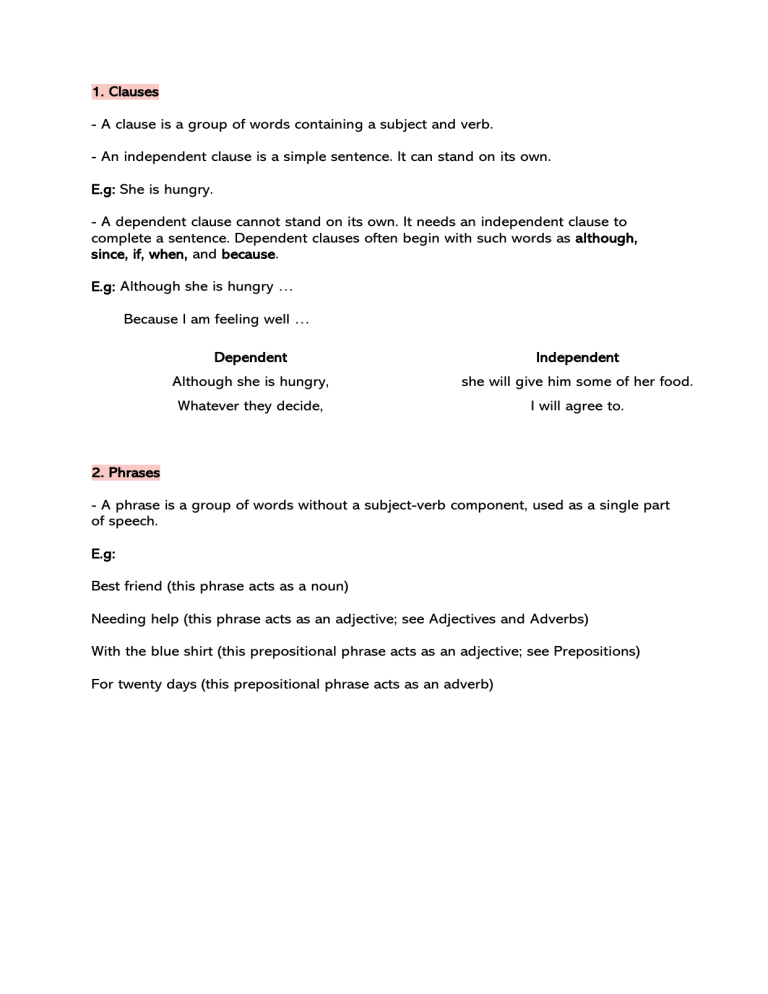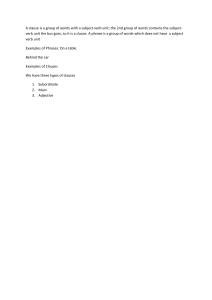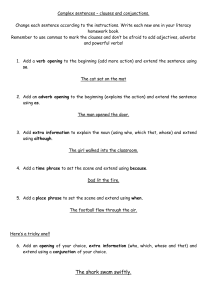
1. Clauses - A clause is a group of words containing a subject and verb. - An independent clause is a simple sentence. It can stand on its own. E.g: She is hungry. - A dependent clause cannot stand on its own. It needs an independent clause to complete a sentence. Dependent clauses often begin with such words as although, since, if, when, and because. E.g: Although she is hungry … Because I am feeling well … Dependent Independent Although she is hungry, she will give him some of her food. Whatever they decide, I will agree to. 2. Phrases - A phrase is a group of words without a subject-verb component, used as a single part of speech. E.g: Best friend (this phrase acts as a noun) Needing help (this phrase acts as an adjective; see Adjectives and Adverbs) With the blue shirt (this prepositional phrase acts as an adjective; see Prepositions) For twenty days (this prepositional phrase acts as an adverb) CLAUSES OF CONCESSION They are used to express contrast between two statements or ideas. There are various ways of contrasting information and expressing a concession or an unexpected result. English uses: Although Even though Clause Conjunctions Though (informal) (S + V) While Whereas In spite of Noun, Pronoun (this, that, etc) or V_ing Prepositions Despite In spite of the fact that Clause Despite the fact that However Adverbs/ Transition signals Nevertheless Still - We can use Although at the beginning or in the middle of a sentence. E.g: They don't spend much money although they are rich. Although it rained a lot, the students enjoyed their holiday. - We can use in spite of, despite in the middle or at the beginning of a sentence. E.g: Berk won the prize in spite of the difficult conditions. Despite the traffic jam, we arrived on time. Despite the fact that she had planned everything carefully, Laura made a lot of mistakes. - Adverbs or transition signals are positioned between two simple sentences to make a compound sentence or we usually put the two ideas in two separate sentences. If they are put in the second sentence we can put it at the beginning, at the end, or after the subject. Commas are used to separate these words and phrases from the sentence or within a sentence. E.g: The tickets to the closing ceremony of the Olympics are really not within my price range. Still, it would be worthwhile going! I love London. However, the weather is bad. I love London. The weather, however, is bad.




